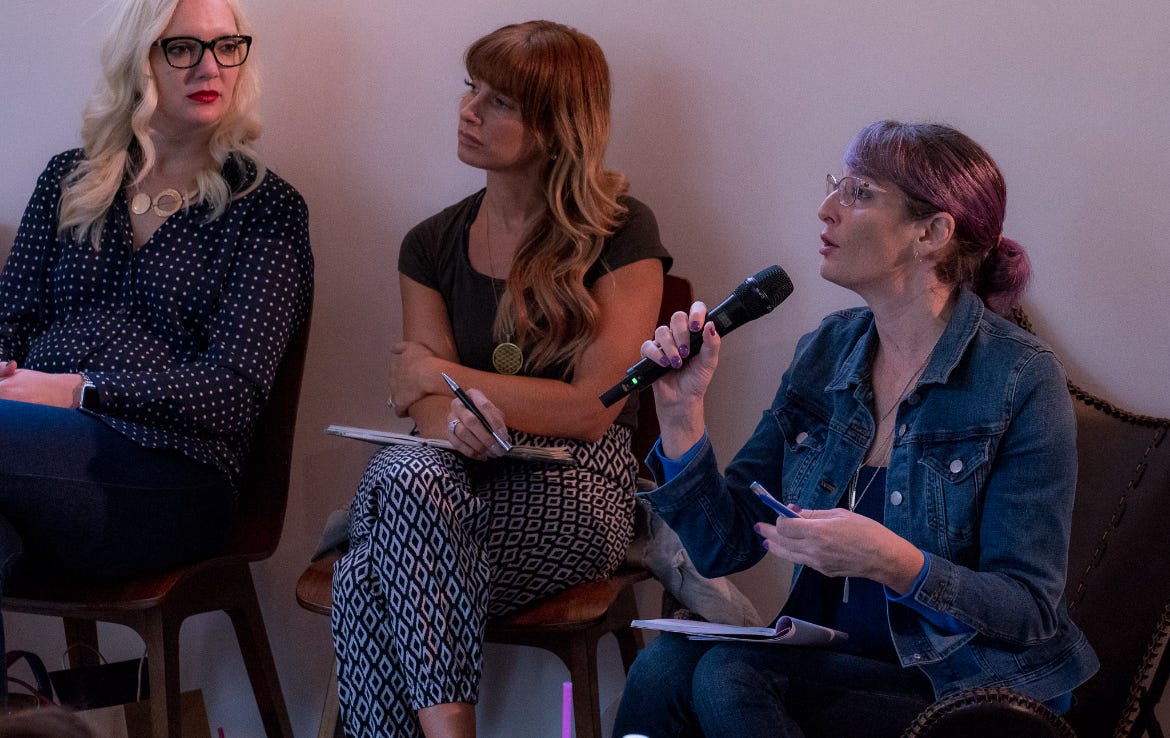The sirens are still screaming.
You’re still watching.
Even now, with bodies not yet bagged, you’re already scrolling—waiting for footage, waiting for the statement, waiting for someone to tell you what happened.
You don’t even realize how fast it’s gotten.
Before the gunpowder settles, the cameras are rolling.
The crying witnesses are lined up like guests on a game show.
The blood isn’t even dry, and already you want answers. Already you want the details.
How many shots?
What kind of gun?
Where did he get it?
How long did it take?
Was it personal?
Was it random?
That’s the question you’re really obsessed with, isn’t it?
Was it random—or could it have been me?
You don’t say it out loud. But you think it.
Because the closer it gets to home, the more alive you feel.
And that’s the sickness I’m here to name.
You’ve Confused Horror for Intimacy
You mistake proximity to death as connection.
You confuse other people’s trauma with meaning.
You watch crying parents and think you’re feeling something—but you’re just feeding something.
And you know it.
You’ve learned to call it empathy.
But you don’t reach out. You don’t change.
You just consume it and keep going.
“Having a form of godliness but denying the power thereof…” (2 Timothy 3:5)
You’ve been faking virtue in the name of awareness.
You’ve made a habit of watching horror unfold in real time and pretending it’s education.
But you’re not a student. You’re a spectator.
And what you’re really learning is how to feel nothing while watching everything.
You Feed on the Details
That’s the part you really need to sit with.
You don’t want solutions. You want the story.
You want to know what the shooter wore.
What he wrote.
What his father did.
What meds he was on.
You want to read the group chat screenshots.
You want to find his Reddit account.
You want to see the security footage.
You want everything but repentance.
And you call it staying informed.
But what are you becoming informed for?
What do you do with the information?
Does it make you wiser?
More whole?
Or does it just feed the part of you that’s already gone cold?
You used to be a human being. Now you’re an observer.
And somehow you think that makes you safer.
But the devil is in the details. And you’ve become his analyst.
You’ve Built an Altar with Your Attention
Let’s talk about the interviews.
Let’s talk about how fast you turn witnesses into celebrities.
You don’t care that they’re shaking, that their pupils are blown out, that they haven’t even begun to grieve.
You care about how clearly they can describe it.
You want the words raw and vivid.
You want trauma in HD.
Because the better they tell it, the more important you feel for watching.
You elevate them as survivors—but you consume them like product.
And you know who else is watching?
The next one.
Right now, there is a lonely, rage-filled child watching the footage you just shared.
Reading the comments you just posted.
Taking notes.
Learning exactly what kind of pain earns a platform.
And soon, you’ll be watching his victims cry.
“You did not weep when I called you to mourn.” (Isaiah 22:12)
What You’ve Become
You are not the victim.
You are not the healer.
You are not innocent.
You are the one who watches death, eats the pain of others like a meal, and waits for dessert.
And when the next one comes, you’ll do it again.
You’ll turn the volume up.
You’ll zoom in.
You’ll ask yourself if this one is “worse than the last.”
You’ll talk about policy as if that’s ever been your priority.
You’ll say “we need to do something,” and then you won’t.
Because what you want is proximity to meaning without cost.
And what you’ve become is a spectator at the slaughter.
You Can Still Choose
But I didn’t come here to scold you.
I came to tell you that you can still choose.
You can choose to stop feeding it.
You can choose to grieve before the camera tells you to.
You can choose to let your stomach turn instead of numbing out.
You can choose to ask:
What kind of creature am I becoming?
Because if you don’t stop and look at yourself now, you will keep feeding this machine until the day it turns on you.
And when it does, no one will weep.
They’ll just watch.
“They did not repent of their murders… nor of their thefts.” (Revelation 9:2)
If you feel called out, you should.
I’m not judging you, but you’ve been complicit.
Your consumption is part of the chain of events. Your attention is part of the incentive.
And the longer you pretend otherwise, the more dangerous you become—to yourself and to everyone around you, near and far.
So, now that you know, the question is whether you’ll stop.
Or whether you’ll scroll past this, too.



